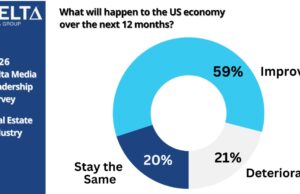GRID Alternatives announces free national technical assistance services for affordable multifamily housing
Program includes turnkey design and installation services
OAKLAND, CA – April, 2016 – (RealEstateRama) — GRID Alternatives, America’s largest nonprofit solar installer, today announced an expansion of its multifamily solar program to include free technical assistance nationally for affordable housing owners, developers, and operators. The program also offers turnkey solar PV design/installation for multifamily affordable housing in several states.
The technical assistance service, launched to coincide with the Housing California conference in Sacramento, is funded by a grant from The JPB Foundation and is intended to reduce barriers to entry and help affordable housing providers install solar power on their multifamily dwellings. With more than six million American families living in affordable housing units nationwide, the opportunities are huge.
“For housing owners and developers, putting solar on multifamily housing portfolios can have great benefits, but it can also be very complex,” said Tim Sears, COO and Co-founder of GRID Alternatives. “This service helps navigate complicated funding and regulatory issues to stabilize utility bills, save money, retain tenant services, and avoid raising rent. It’s a win for everyone involved.”
GRID Alternatives will provide free comprehensive technical assistance including complete portfolio assessments for multifamily housing owners; identification of funding options for existing, new construction or building rehabilitation; owner representation, bid analysis, and other services to support solar implementation; evaluation of energy efficiency and battery storage options; and resident connections to workforce development and energy efficiency education opportunities.
GRID Alternatives also offers turnkey in-house solar design and installation services in California, Colorado, the mid-Atlantic and the New York tri-state area. These projects incorporate energy efficiency and solar education, as well as hands-on skills training opportunities for residents and local job trainees to help them access jobs in the fast-growing solar industry.
The new technical service offering is particularly timely in California, which provides significant incentives to support multifamily solar adoption. In addition the Multifamily Affordable Solar Housing (MASH) program, which provides rebates for multifamily solar installations, California also passed AB 693 in 2015 to allocate up to $100,000,000 annually from the state’s cap and trade proceeds to fund solar installations on multifamily housing in disadvantaged communities, starting in 2017.
GRID Alternatives has extensive experience providing technical assistance to federal and state policymakers, affordable housing providers, city and county government agencies, and Native
American tribes across the country, including:
• Consultation with the U.S. Department of Housing and Urban Development to help meet President Obama’s goal of 300 megawatts of solar on federally-assisted housing.
• Directly securing funding while providing siting and technical assistance for solar projects with partners like the Fresno Housing Authority, Denver Housing Authority, and various NeighborWorks America affiliate organizations.
• Developing innovative and successful programs to directly integrate workforce development into solar project design and implementation.
• Direct management of California’s $162 million Single-Family Affordable Solar Homes (SASH) Program since 2009, and of the solar component for the Department of California Services and Development’s Low Income Weatherization Program since 2015.
About GRID Alternatives
GRID Alternatives is America’s largest nonprofit solar installer bringing clean energy technology and job training to low-income families and underserved communities through a network of community partners, volunteers, and philanthropic supporters. GRID has installed nearly 6,700 rooftop solar systems with a combined installed capacity of almost 23 megawatts, saving nearly $180 million in lifetime electricity costs, preventing over 500,000 tons of greenhouse gas emissions, and providing over 25,800 people with solar training. For more information, visit http://www.gridalternatives.org/multifamily.
Media Contact:
Julian Foley
510-731-1188










